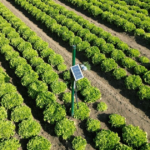A groundbreaking study has revealed that transitioning to a more sustainable global food system could generate up to $10tn (£7.9tn) in annual benefits, improve human health, and alleviate the climate crisis. This comprehensive economic study, the most extensive of its kind, found that existing food systems not only fail to create value but actually destroy it due to hidden environmental and medical costs. In essence, these systems borrow from the future to secure profits today.
The current food systems are responsible for a third of global greenhouse gas emissions, putting the world on track for a devastating 2.7C of warming by the end of the century. This destructive cycle exacerbates extreme weather events and causes significant damage to crops.
Moreover, food insecurity places a burden on healthcare systems. If the current trajectory continues, the study predicts that by 2050, 640 million people will be underweight while obesity rates will increase by 70%.
The international team of authors behind the study, aiming to create a food equivalent of the influential Stern review on climate change, asserts that transitioning the food system will be politically challenging but will yield enormous economic and welfare benefits. Johan Rockström, one of the study’s authors from the Potsdam Institute for Climate Impact Research, emphasizes that “the global food system holds the future of humanity on Earth in its hand.”
The study proposes redirecting subsidies and tax incentives away from destructive large-scale monocultures that rely on harmful practices like forest clearance, pesticides, and fertilizers. Instead, financial incentives should be directed towards smallholders who can transform their farms into carbon sinks and create space for wildlife.
Another crucial element of this transformation is a change in diet, along with investments in technologies that enhance efficiency and reduce emissions. The report suggests that with reduced food insecurity, undernutrition could be eradicated by 2050, leading to 174 million fewer premature deaths and enabling 400 million farm workers to earn a sufficient income. These changes would also help limit global heating to 1.5C above pre-industrial levels and halve nitrogen run-offs from agriculture.
The authors estimate that the costs of this transformation would range between 0.2% and 0.4% of global GDP per year.
Earlier research by Rockström and his colleagues revealed that food is the largest sector of the economy exceeding planetary boundaries. Aside from its impact on climate change, the food system is a significant driver of land-use change, biodiversity decline, and accounts for 70% of freshwater drawdown.
The Food System Economics Commission, consisting of the Potsdam Institute, the Food and Land Use Coalition, and EAT, a comprehensive food-system coalition, produced this report. Academic partners include the University of Oxford and the London School of Economics.
The study estimates the hidden costs of food, including climate change, human health, nutrition, and natural resources, at $15tn and introduces a new model to project how these costs could evolve over time based on humanity’s ability to change. This aligns with a report from the United Nations Food and Agriculture Organization, which estimated last year that off-books agrifood costs globally exceeded $10tn in 2020.
Dr. Steven Lord from the University of Oxford’s Environmental Change Institute highlights that this analysis provides an initial figure on the economic opportunity at the regional and global level in transforming food systems. He emphasizes that while the transformation is not easy, it is affordable on a global scale, and the costs of doing nothing pose considerable economic risks.
Numerous studies have already demonstrated the health and climate benefits of transitioning to a plant-based diet. For instance, a report from the Climate Observatory last year revealed that Brazil’s beef industry, along with its associated deforestation, has a greater carbon footprint than all the cars, factories, air conditioners, electric gadgets, and other sources of emissions in Japan.
Although the new study does not mandate vegetarianism, Rockström suggests that demand for beef and most other meats would decline if the hidden health and environmental costs were factored into their prices.
The main challenge of this proposed food transition is the potential rise in food costs. Rockström highlights the need for political finesse and support for disadvantaged sections of society to avoid protests similar to the recent farmers’ protests in Europe or the previous gilets jaunes demonstrations in France. Ravi Kanbur, a co-chair of the group and professor of economics at Cornell University, asserts that “no one should be left behind.”
Nicholas Stern, chair of the Grantham Research Institute on Climate Change and the Environment at the London School of Economics, welcomes the study and emphasizes the urgent need for radical change. He states that the current economics of the food system are irreparably broken, harming both human health and the planet while exacerbating global inequalities. Stern believes that transforming the way we produce and consume food is crucial for addressing climate change, protecting biodiversity, and building a better future.
Former executive secretary of the UN Framework Convention on Climate Change, Christiana Figueres, highlights the forward-looking nature of the report. She argues that it demonstrates the possibility of a different reality and outlines the steps required to turn the food system into a net carbon sink by 2040. Figueres urges policymakers to seize this opportunity to secure a healthier future for the planet and its inhabitants.




